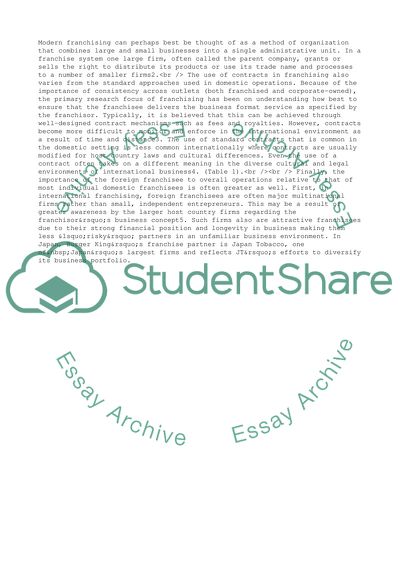Cite this document
(International Franchising Essay Example | Topics and Well Written Essays - 2250 words, n.d.)
International Franchising Essay Example | Topics and Well Written Essays - 2250 words. Retrieved from https://studentshare.org/business/1549918-issues-in-global-business
International Franchising Essay Example | Topics and Well Written Essays - 2250 words. Retrieved from https://studentshare.org/business/1549918-issues-in-global-business
(International Franchising Essay Example | Topics and Well Written Essays - 2250 Words)
International Franchising Essay Example | Topics and Well Written Essays - 2250 Words. https://studentshare.org/business/1549918-issues-in-global-business.
International Franchising Essay Example | Topics and Well Written Essays - 2250 Words. https://studentshare.org/business/1549918-issues-in-global-business.
“International Franchising Essay Example | Topics and Well Written Essays - 2250 Words”. https://studentshare.org/business/1549918-issues-in-global-business.


